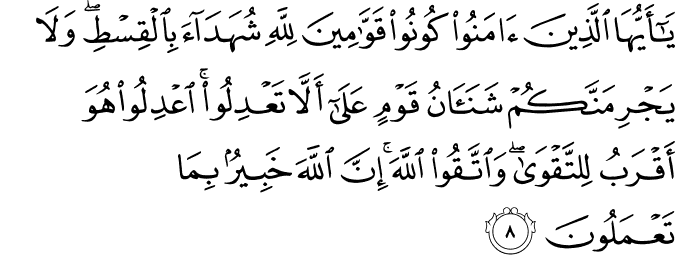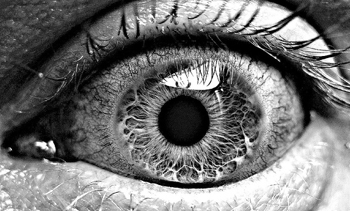Imagine a world where everything is in black
and white, like in the old movies. It would be extremely hard to extinguish
between players in FIFA, and my aesthetic collection of t-shirts would be
useless without colours. I like to believe that the world would be an extremely gloomy and boring place, where
the rainbows in gay parades would be just black and white, and it would be difficult to detect jaundice among
newborn babies.
I cannot imagine what would happen if our
receptors could only see in shades of grey, but it seems that some people love
to see the world in black and white. Not literally of course, because then people
wouldn't have undergo the hassle of making colour televisions. People like to differentiate themselves from
others by their beliefs and their
identities. When everyone seeks to be different and outstanding from others,
their lives become individualistic and competitive. Nobody wishes to be another
brick in the wall, like the red bricks of those homogenous houses all around UK
which looked all but the same.
Acemoglu and Robinson, in their book Why
Nations Fail, theorizes that the among the reason a country could grow wealthy
is due to the individualistic nature of the society. The citizens who seek to
be better people than their friends and neighbours would seek to improve their
trade or innovate; create something new or simply better, and this led to the
creation of steam engines and cotton spinners. While many would assert that
those innovations are the product of material pursuit , I believe that
individualism-the pursuit to be unique is one of the driving factors. Seeing
how aggressive is the competition to get
into universities and the craze in research and development in this country
further proves my thought.
An agrarian country, where everyone
either plant rice or rambutans would be an extremely dull place to live. There
would be nothing else to talk about other than rice and rambutans, and there
would be little improvement in life other than about those two plants. I
believe that the world is a much more interesting place is you can meet people
of different jobs and experiences daily, ranging from skydivers to cooks. The
spectrum of colours in life is so vast and wide, yet why do some people choose
to see the world in black and white?
Islamists in the middle east, during their early days
only sees the world in black and white. They divided the world between muslims
and the kafir west, and failed to appreciate other differences. As a result ,
it becomes difficult to accept anything that originates from the 'enemy', even
if it is something good. It was
difficult for Islamists at first to accept democracy ,and they were skeptical
of ideologies that came from the west. Liberal ideas become something alien and labeled
as blasphemous and dangerous in Muslim
countries, even though some of these
ideas are the same with the promises of religion.
Some people in Pas views the
society in black and white; those who support the hudud versus those who go
against hudud. When there are various
reasons that cause people to oppose the hudud, the debate become closed when
all who oppose hudud are regarded as blasphemous, enemies of the religion. Why
would a muslim accept the views of the enemy of a religion? The failure to view
the world in its full colours would kill discussions before they even started.
There are people who opposed because they believe the hudud Pas is trying to
bring does not follow the original text by
a hundred percent. There are others who believe that the social
conditions should be conducive before syariah is implemented, and others who
are concerned about Pas' lack of preparation for the technicalities of the
laws. Those people who opposed the implementation are not concentrated wholly
into a group who opposes hudud just for the sake of it. We must recognize all
the different colours of opinions that exist, instead of labeling them all as
blacks.
I refuse to see the world in
black and white. Tariq Ramadan mentions in What I Believe, that a human being
is an agglomeration of numerous identities. He refuses to identify himself
merely as a muslim, but also as a citizen of his country, a member of a race, a
father, a son and a neighbour, all of which constitutes a human being. When we
view ourselves and others simply as muslims and non-muslims, we somewhat fail
to recognize that 'they' too are human beings which share the same intrinsic
values of justice and kindness. By seeing the world in black and white, we put
other differences as trivial and secondary, and I believe that that makes a
bleak worldview.

Sahih International
O you who have believed, be persistently standing firm for Allah , witnesses in justice, and do not let the hatred of a people prevent you from being just. Be just; that is nearer to righteousness. And fear Allah ; indeed, Allah is Acquainted with what you do.
When ISMA sees the world in
black and white, they view muslims as brothers, and non-muslims as enemies. It
is therefore natural to say hurtful things to someone you consider as enemies,
to put extreme caution around them ,or make conspiracy theories about those
evil beings . In the same time, it becomes natural to defend and justify
whatever your brothers do, however corrupt and wrong it is, because that is
what families are for, right?
The world is full of bright
colours and weird things, so why would one see the world in black and white?
Black and white movies are outdated and ancient, and now ,the upcoming 4K television
can show you millions of contrasting
tones and shades.
*this article does
not intend to insult color-blind people




